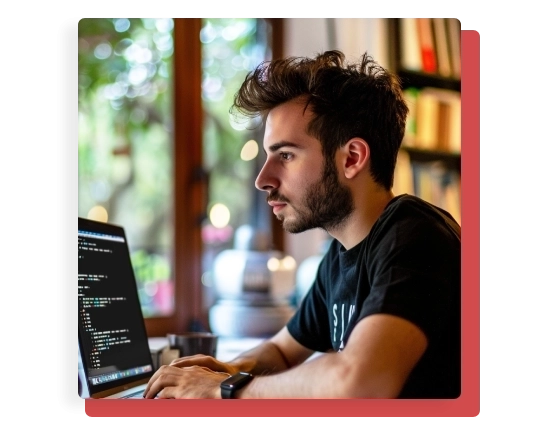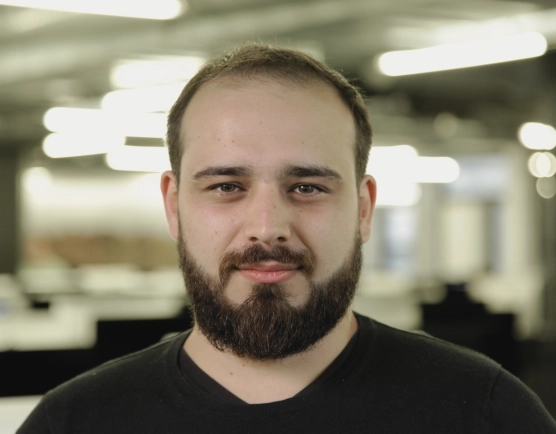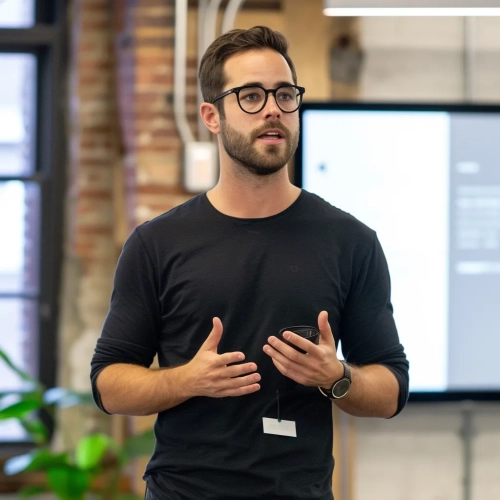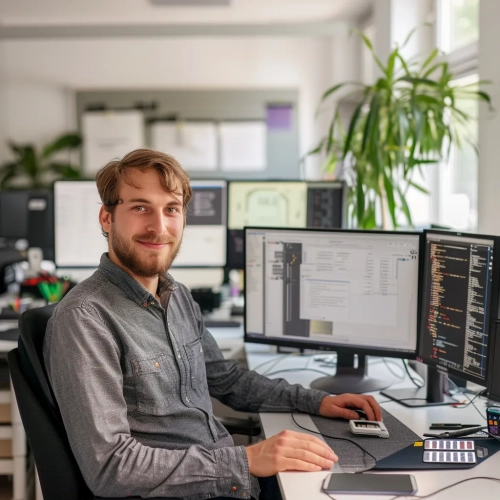


The full stack developer is an expert in the creation of websites and applications, capable of managing both the elements visible to users (front-end) and those in the background (back-end). From the outset of a project, they contribute to the technical strategy, choosing the tools and technologies best suited to the requirements of the specifications.
They design complete solutions, write the code, test the functionalities and optimise the front-end to ensure a smooth user experience. Working with designers and project managers, they ensure that the final product meets expectations, and remain involved in its maintenance and development.
This job belongs to the field of web development.
"The main threats often come from people. Even if the IT system is designed correctly, with no known flaws, there is no such thing as 0 risk."
Matthieu S - Full stack/cybersecurity developer at Inforca

The fullstack developer begins by analysing the needs of the users or the customer, working closely with them to define the objectives of the IT project. On this basis, they configure the project infrastructure and the dependencies between software components. They participate in the design of the overall application architecture and recommend the most appropriate technologies for each digital project.
The fullstack developer is responsible for both back-end and front-end development.
Designing a digital solution is one thing, testing it is quite another. Before putting the developed solution into production, the full stack developer carries out unit and functional tests, as well as integration tests to ensure that the code functions correctly in real-life conditions. They often use automation tools to speed up the validation process and ensure exhaustive test coverage. During this phase, they identify and correct any bugs and ensure that the code complies with the expected quality and performance standards.
Once in production, they continue to monitor the application's performance and carry out corrective and evolutionary maintenance to meet new needs or correct any problems. It documents test results and updates monitoring tools to ensure traceability and facilitate future improvements.








A full stack developer masters front-end technologies such as CSS, JavaScript, and the React, Vue.js and Angular frameworks. They are also comfortable with backend technologies such as Java, Python and PHP, as well as their respective frameworks: Spring, Django and Symfony. He also has a good knowledge of servers such as Nginx or Apache, and of managing cloud environments via AWS or Google Cloud.
This IT enthusiast has expertise in database management with systems such as MySQL, MongoDB and PostgreSQL. He is also familiar with containerisation tools such as Docker and CI/CD pipelines using Jenkins. His skills are not limited to programming; he is also familiar with project management tools such as GitLab and Agile methods, in particular Scrum.
Full stack developers combine technical skills with interpersonal qualities. They are versatile, autonomous and organised, capable of working alone or in multidisciplinary teams. They have a strong ability to analyse and solve problems. Their adaptability enables them to integrate quickly into new environments, and their time management skills are an asset in fast-paced projects.
After a BTS, DUT or licence, candidates can continue their training with a master's degree or an engineering school diploma. Although degrees from Bac+2 to Bac+5 are preferred for their solid theoretical foundations, it is above all practical experience and mastery of technical skills that are important for establishing oneself in this field. Internships and work experience schemes are often highly valued by recruiters.
The sector is very open to self-taught profiles, trained on online platforms such as Udemy, OpenClassroom, or virtual schools like Oclock.io, which offer specialised courses in full stack JS development. In addition, training centres such as La Capsule and Ironhack, as well as others in France, enable you to acquire the basics of web development in just a few weeks. École 42 in Paris, for example, offers free training with no diploma prerequisites, issuing a certificate at the end of the course.
With experience, a full-stack developer can progress to lead developer ,technical architect , technical project manager or even Chief Technical Officer (CTO). These positions require solid technical expertise as well as team management skills and the ability to manage large projects.